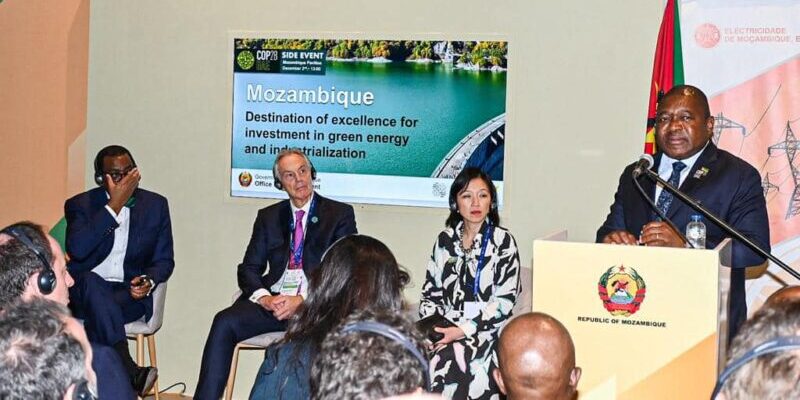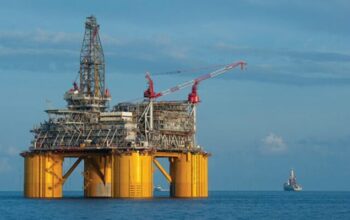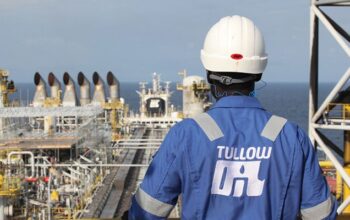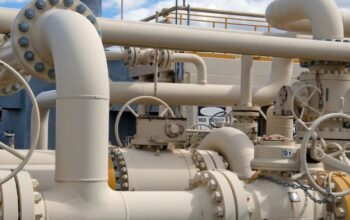Mozambican President Filipe Nyusi launched on Saturday 2nd December, in Dubai, the Energy Transition Strategy for 2023-2030, an initiative intended to place the country at the forefront of climate innovation, as well as making it an attractive investment destination.
The launch took place during a panel at the United Nations Climate Change Summit, COP 28.
“The Strategy’s mission is to leverage Mozambique’s abundant renewable and natural resources to accelerate the implementation of a low-carbon development path”, Nyusi explained, speaking at the panel entitled “Unlocking Investment Opportunities in Mozambique’s Energy.”
According to Nyusi, over 75 percent of the energy consumed in the country is hydroelectric (which he regarded as clean and renewable), and only a third is produced by thermal power stations.
As a result, he said, carbon emissions in Mozambique from fossil energy consumption are insignificant and have no impact on changes in climate patterns.
“In fact, Mozambique plays a key role in the energy transition in the region and the world in supplying southern Africa’s energy needs, which will contribute to regional decarburization”, the President said.
Nyusi cited the Zambezi River as an example, which has the potential to produce 18,000 Megawatts, constituting a resource with immeasurable economic potential for low-carbon development at national and regional level.
He stressed the potential of the Mphanda Nkuwa dam, to be built on the Zambezi, 60 kilometres downstream from the existing dam at Cahora Bassa.
Two power stations could be installed at Mphanda Nkuwa, with a total generating capacity of 2,400 megawatts.
A second power station at Cahora Bassa would add 1,245 megawatts. Hydroelectric projects planned at Lupata, Boroma and Chemba could generate 1,440 megawatts.
Nyusi also believed that Mozambique’s strategic position is reinforced by the existing electricity transmission lines and those under construction from the Zambezi Valley to South Africa and Zimbabwe.
The President said Mozambique is repeatedly suffering the effects of rising temperatures induced by climate change. The tropical cyclones Idai, Kenneth, Gombe, and most recently Freddy, have all hit the country, causing incalculable damage.
Nyusi noted that Mozambique is home to large natural gas reserves of around 180 trillion cubic feet and two Liquefied Natural Gas (LNG) projects with immense potential to generate finance.
“Unfortunately, fossil fuels still dominate the energy market, accounting for around 80 percent of the global market and with no visible plan to reduce them”, he said, deploring the fact that funding for the energy transition and compensation for climate damage to the least developed countries had not yet materialized.
He warned that the energy transition requires major investments in new technologies associated with electric vehicles, the use of green hydrogen, the expansion of transport networks, digitalization and the training of young people.
![]()




